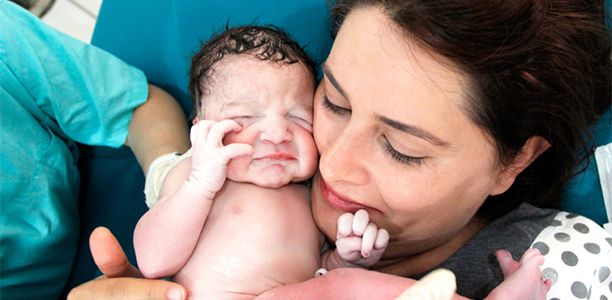The ‘love’ hormone released when mum and baby have quality bonding time immediately after birth reduces the incidence of the woman haemorrhaging, says retired senior obstetrics manager Anne Saxton who will be awarded a Doctor of Philosophy (PhD) at the Southern Cross University.
Ms Saxton was concerned at the rate of post-partum haemorrhage (PPH) – excessive bleeding after the baby’s birth which may compromise the mother’s health – observed during her time as the senior midwifery manager with network responsibility for 19 hospitals across the Hunter and New England health districts.
Yet at one hospital, where mums and bubs were allowed at least 30 minutes of undistributed time immediately after birth for skin-to-skin contact and breastfeeding, the PPH rates were as low as 2%.
“We came to the conclusion that giving a woman skin-to-skin contact with her baby and allowing spontaneous breastfeeding was a key factor,” said Ms Saxton who analysed more than 7500 individual cases for her study.
The results indicate that when a woman had skin-to-skin contact and breastfed her baby within 30 minutes of birth the risk of postpartum haemorrhage was reduced fourfold.
“Skin-to skin-contact stimulates the release of the natural hormone oxytocin which contracts the uterus. Oxytocin is usually looked at in terms of relationships, but there’s a physiological basis and health benefit as to why breastfeeding and skin-to-skin stimulate and releases the ‘love’ hormone,” Ms Saxton said.
“Thirty minutes is good but an hour would be even better. However in busy obstetric units, where there’s pressure to get women out of the birthing units, then 30 minutes is enough.
“I’m hoping this will lead to changes around the world. There has been a lot of interest in my work since the results paper was published.”
(Source: Southern Cross University)










